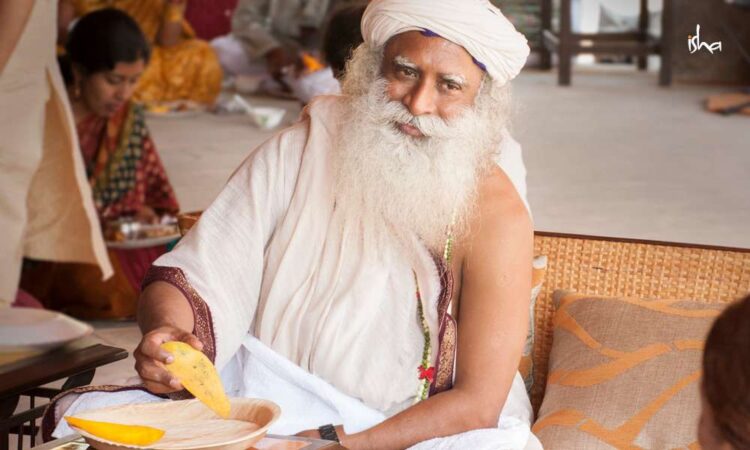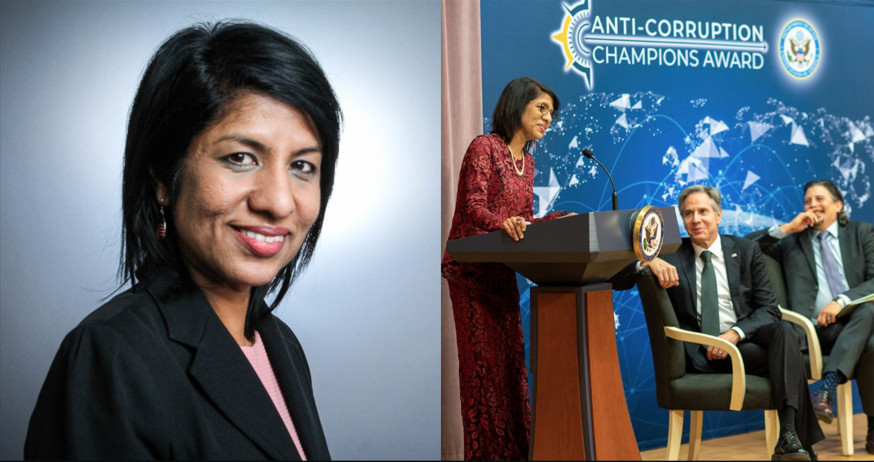The topic of save soil has been the talk of the town and yes it’s an important topic for us to look upon on. This time around, Sadhguru shares his insights on how short-term and individualistic thinking is ruining the planet for future generations.
This exclusive interview with Sadhguru, Founder of Isha Foundation, India, served as one of 50 inputs from global thought leaders for The Great Narrative, the new book by Klaus Schwab and Thierry Malleret that describes how we can create a more resilient, inclusive and sustainable future post-COVID-19.
Reinventing well-being
How can your practice as a yogi help us reinvent this idea of well-being and be less driven by materialist aspirations and more by spiritual considerations?
What are we pursuing right now? Human pursuit is in terms of their well-being. When survival is a question, it’s a big issue. Once it’s settled, we want happiness, joy, love and a pleasant experience. In pursuit of that, we’re ripping the planet apart. But human experience happens from within – pain, agony and ecstasy come from within us. When every human experience is manufactured within us, why do we dig up the world to be happy if we’re joyful people? The biggest problem is that human beings are not naturally joyful like when they were children.
At square one of our lives, everyone is peaceful and joyful and, as our intelligence grows, they become miserable. I thought intelligence was the solution, but somehow people are trying to prove intelligence is the biggest problem. You can call it stress, tension, anxiety, madness, whatever. It’s your intelligence turning against you. When your intelligence turns against you, you can turn the planet upside down, but you won’t solve your problems.
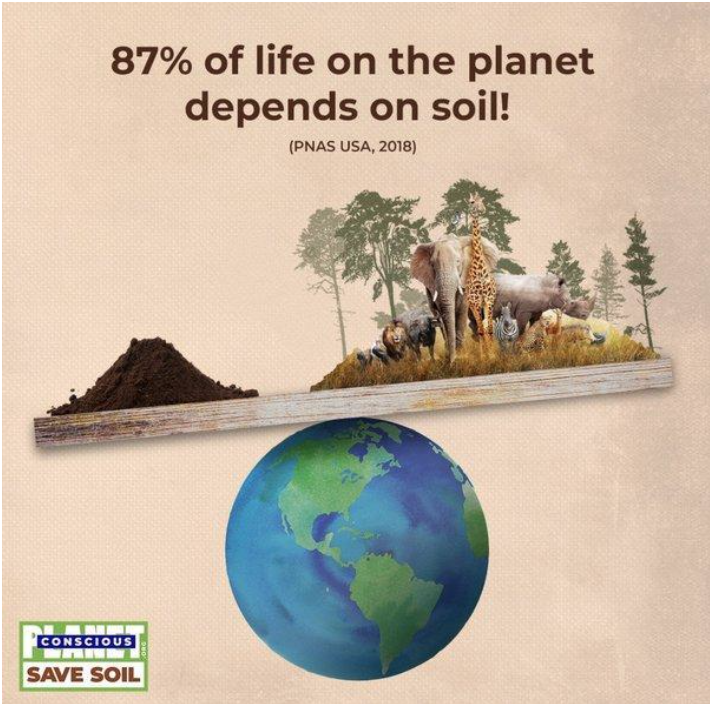
Human beings have become miserable, not because life around us is bad but because our education systems and social structures have not taught people how to manage their own faculties, minds, memory, or imagination. They’re always suffering from one thing or another. In childhood, there’s an infancy problem, you can’t walk; if you’re a toddler, you have a diaper problem; if you’re an adolescent, you have a hormonal problem; if you’re middle-aged, it’s a crisis; and old age is horrendous – there’s no end to this.
At any time, people have their own problems. Every stage of life has been labelled a problem, not because life is a problem, but simply because our educational systems and social structures aren’t providing clues about how to manage this. We’re interested in exploiting another planet, but we’re not interested in how to take charge of this one (indicating oneself).
Right now, our faculties are suffering; we’re not suffering the outside world. All these never-before comforts have been created for this generation, but still, we’re suffering because our own intelligence pokes and stabs us every day from the inside. You don’t need anyone’s company; nobody needs to torture you – you can go on creating misery within yourself on your own. I understand that 700,000 people have committed suicide this year. It’s happening because suicide is the ultimate manifestation of our intelligence turning against us.
The first and foremost thing that must happen to humans is that if you sit here, you’re blissed out by your own nature. This must happen. If it does, what you do in the world won’t be compulsive. Right now, everyone is in the compulsive mode, so there’s endless exploitation because we’re trying to milk happiness from the world. It’s like a potato farmer going to an apple tree and, instead of looking up, he starts to dig up the ground. All that will happen is that the apples won’t be produced, as they won’t grow underground. And if you dig up the ground, you’ll uproot the tree. But the apples won’t come to you; you need to look up for the apples.
It’s the same for humans: if you want joy, peace, health, ecstasy and blissfulness, you must turn inward. Right now, you’re trying to squeeze it from the outside world. You can call this materialism, but it’s a misdirected missile.
The problem is in agriculture
So, the solution lies within each of us. But from a policy perspective, what major change should happen to make the world a better place?
As the world has become largely democratic, policies are made to make people happy because if they aren’t happy, they won’t elect the politicians and their terms are only four to five administrative years. So, policies are made because it pleases people and serve the purpose of the terms. It’s been hugely damaging for the world because everyone is interested in short-term goals, whether it’s a company or a government. No one thinks long-term enough because they don’t want to think beyond their term, but we need awareness of this in the world.
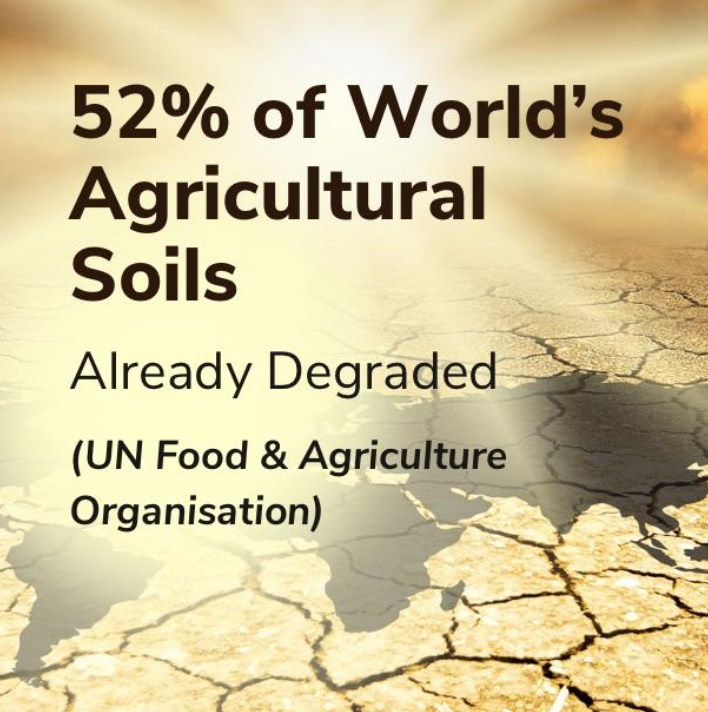
The electorate needs to say what they want. We’re looking to create this with the Conscious Planet movement, in which we’re trying to move 60% of the world’s electorate or over 3 billion people (5.62 billion have the franchise in their hands) to elect governments. We’re trying to move them but with one cause, because saying 10 things won’t be understood.
Famines have taken millions of people’s lives in many nations, especially in India and China, and even in Europe at some point in time. Today, food is better organised. It can be moved from anywhere to anywhere. So, famines no longer happen as we’ve taken charge of the agricultural process, but at a high cost to the soil. Nearly 60% of Indian soil has less than 0.5% organic content; a minimum of 3% to 6% of organic content is needed for agricultural soil. Forests have an organic content of 70%. That’s how soil should be. The word “human” comes from the Latin humus, which means rich, living soil, because our body is the very soil we walk upon.
So, saving soil is just saving the very soil that we are. The UN is saying we have enough soil for a maximum of 80 to 100 crops on the planet. That means in 45-60 years, we’ll hit a food crisis. I met a man who’s growing turnips on a wall in his house. It’s wonderful that he’s doing this, but why doesn’t he pluck them? He said he wouldn’t because people are coming to see them, so it’s good for show. But without enriching the soil, there’s no other way.
I’m looking at how to change the policy on the planet of all the 192 democratic countries at least, how to change the policy, how to make some simple rules so that those who own agricultural land maintain a certain level of organic content. I’m not talking about organic farming – they can do what they want. But the soil should be rich. We use it now and the next generation will need it in the future. They’re not going to the moon or Mars; they’ll be living here, too.
It’s extremely important that we leave the soil at least reasonably rich. We won’t leave it as it was given to us because the damage has been extensive. The desertification of the planet is a serious question because our very bodies are soil. After the ocean, the biggest carbon sink in the world is soil, and the greatest water soak is soil. If soil is in good condition, the amount of carbon it can absorb and recycle through the vegetative process is enormous. We must put a substantial part of the world, particularly the tropics, under shade.
Right now, our faculties are suffering; we’re not suffering the outside world.—Sadhguru, Founder, Isha Foundation, India
Currently, we’re talking about global warming, and I’ve been saying this for the last 22 years: when global warming happens, southern India will benefit. People didn’t believe me but ask them to look at the amount of copious rain we’re receiving today. Whatever used to be summer is almost gone for us. Through the summer, it rains, and if the climate warms by 1.5° C, millions or billions of tons of water will evaporate. Where will it go?
It’s in the atmosphere, and peninsulas and islands will benefit from that but, for the northern part of the planet, what was coming down as snow will start to fall as rain and there will be humongous disasters, such as the unheard-of floods in New York City. For all this, everyone thinks there are carbon emissions and coal burning, but the most important thing is that if there is tree cover on the soil, global warming will not continue at its current pace.
So, it’s about agriculture and regenerating the soil?
The problem is that we’re always focused on the industrial problem, but industry can be fixed very easily with proper regulation and enforcement.
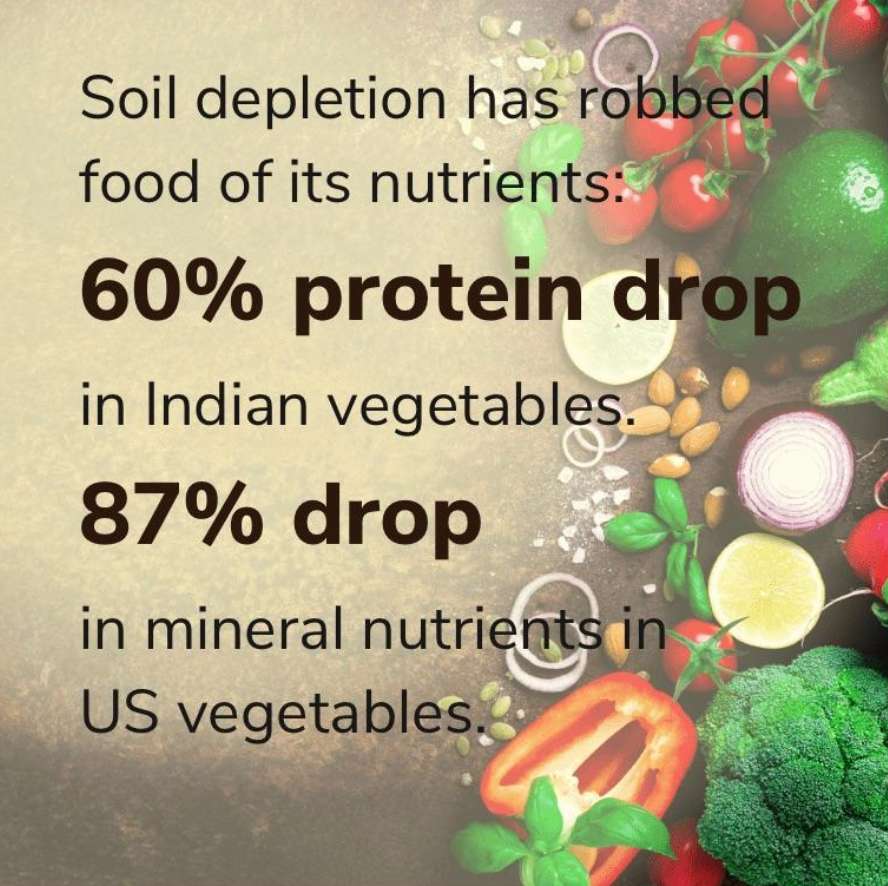
Agriculture occupies nearly 60% of the world’s land. That’s where the problem is, though the escape for agriculture has always been that they’re poor people and that you can’t touch them. This is why we’ve come up with a methodology implemented in the last 20 years, benefiting over 100,000 farmers. We’ve married ecology and economy in a certain way that, through economic activity, the ecological significance of the soil will increase. In many ways, there’s a lot of ecological benefits and economic improvements. Farmers are earning many-fold over, and soil richness is improving at the same time.
They’re adding more humus to the soil every year. This needs to happen around the globe, particularly in the tropical world. That’s where sunlight falls on the ground, and it falls on open ploughed soil – this is a sure way to kill all the biodiversity. In fact, 80% of the biomass insects have disappeared over the last 30 years. We’re trying to make soil go extinct – if there’s no biomass in it, it’s as good as sand.
What are you optimistic about?
I’m optimistic about human beings. While they’re the only problem on the planet, we can turn them around because we’re invested with a certain amount of intelligence. Never before was it possible to sit here and talk to the world. Many great beings have come on this planet, but when they’ve spoken, hardly 10 people have heard them. Currently, we have technologies allowing us to sit here and talk to the entire world. When such technologies and tools are at hand, it’s time to transform humanity. If we don’t do that, it simply means we don’t care.
Our organisation’s video views last year totalled 1.82 billion. If all of us try with the tools at hand, we can educate every human being. It’s the best time to do it. We have the technology and the means. Do we have the necessary commitment and courage to fulfil this in our lifetime? This is a generational responsibility that we must fulfil. Let us make it happen!
-This article is a contribution by Isha Foundation in collaboration with Varnam Malaysia-
Follow us on Instagram, Facebook or Telegram for more updates and breaking news.


